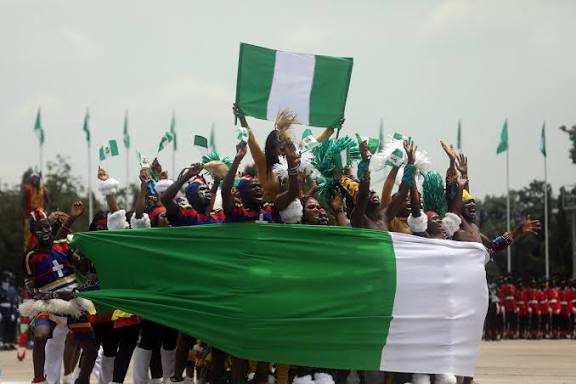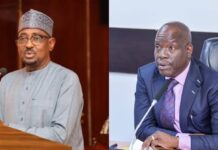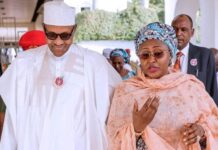Challenges of Nationhood: Nigeria at 65, by Ayuba Ahmad
To understand Nigeria at 65, we have to take a careful look back at where it all began: October, 1960. After decades of British rule, Nigerians were finally told: “You are now in charge of your country.” Optimism was high, the country appeared full of possibilities.
Way back then, agriculture boomed, trade flourished, and even as oil reserves lay mostly untapped, there was a sense that the nation could chart its own path without foreign interference. People believed that the freedom they had longed for would translate into prosperity. However, the early years of independence clearly revealed cracks in the foundation that colonial rule had left behind. Regional rivalries festered, political ambitions collided, and soon, the country was plunged into a civil war, 1967 to 1970.
In the decades that followed, military coups and counter-coups became disturbingly familiar patterns of national life. Each regime promised stability and progress, but often delivered neither. Citizens were left wondering whether independence had changed anything at all, or if it was simply another label pinned onto the same old baggage.
Even today, the past still casts a long shadow. On paper, we are a democracy, but in practice, it often feels like we are still figuring out the rules as we go along. Since the return to civilian rule in 1999, we have had moments to be genuinely proud of, like in 2015, when an incumbent president was voted out peacefully for the first time in history. That was huge! It showed that elections could really matter. But alongside these wins, there is the frustrating, familiar mess of riggings, delayed results, vote-buying, and endless legal battles that drag on for months.
READ ALSO: Protest in Nigeria, my opinion, by Abubakar M. Kareto
We see leaders who promise El Dorado but deliver very little. Oil money continues to pour into the country in billions, but daily, it contends with poor roads, failing hospitals, and schools that barely function. Pension funds disappear, abandoned projects litter cities, and the politics of patronage seem stronger than any sense of public duty. The people at the top often seem more focused on enriching themselves or their allies than actually solving the problems of ordinary Nigerians.
Security is another part of the abysmal picture: Boko Haram in the Northeast, bandits in the Northwest and the North central, separatist agitation in the Southeast, while kidnappings have become a nationwide malady. It is a long list. Each crisis is tied to political choices, or sometimes a lack of them. The insurgency in the Northeast, for instance, has displaced millions and destroyed communities, yet solutions often feel reactive rather than planned. In the Northwest, armed banditry has become a daily nightmare for people just trying to live their lives. And the government’s responses often arrive late or miss the mark. Ethnic and regional politics are another headache. Instead of emphasising cogent policies or solutions, elections are turned into contests of loyalty and primordial sentiments.
The economy is complicated in its own way. For a country with so much potential, oil, gas, agricultural and a youthful population, you would expect life to be easier for most Nigerians by now. But the reality is a pathetic contradiction. On one hand, Nigeria has moments of growth that make headlines and on the other, millions of people are still struggling to make ends meet, and basic necessities like food, fuel, and electricity are luxuries rather than everyday realities.
One of the biggest issues is overdependence on oil. For decades, Nigeria has relied on crude oil as the main driver of the economy. This makes the economy of the country always swing in the direction of the global prices. Sectors that could create jobs and stabilise the economy are amazingly neglected.
READ ALSO: Nationhood Question In Nigeria: De-tweeting the Twitter, by Prof MK Othman
The situation in the Niger Delta illustrates the paradox by which, the nation’s wealth is not translating to widespread prosperity. Oil wealth has been extracted for decades, yet the region still suffers environmental devastation, poor infrastructure, and high unemployment. It’s an example of a resource curse. The picture of the Niger Delta illustrates the scenario of the entire country.
According to recent reports, nearly half of Nigerians live below the poverty line. That means that every day, people like farmers, traders, artisans, and young graduates struggle to keep afloat.
Meanwhile, a small elite enjoys luxury cars, mansions, and overseas holidays. The informal economy, which many Nigerians rely on to survive, tells its own story. Traders in markets, small-scale farmers, and roadside mechanics.
At 65, we are still wrestling with the consequences of being a nation made up of over 250 ethnic groups, hundreds of languages, and a variety of religions. Balancing different ethnic and religious identities while trying to maintain national unity is not easy. From violent clashes in Plateau State and Kaduna to the ongoing separatist agitation in the Southeast, the reality is that Nigerians often live under the shadow of social tensions. These conflicts affect where people live, the schools their children can attend, and even how safe it feels to walk down the street.
Education is another challenge that cuts across almost every part of Nigerian life. On paper, Nigeria has made progress: there are schools everywhere, and universities are producing graduates. But the reality is different. Many schools, especially in rural areas, are underfunded, overcrowded, and lacking basic resources. Teachers are underpaid, overworked, or absent. The sad reality is that when the system fails to prepare young people for the world, many of them leave, seeking opportunities abroad. This perpetuates the circle of brain drain.
Despite the long list of challenges Nigeria at 65 is far from hopeless. In fact, the country is brimming with potential, if only it can be harnessed intelligently. The most obvious asset is its people. Nigeria is young, dynamic, and creative. Over 60% of the population is under the age of 25, full of energy, ideas, and ambition. These are the people who are building startups, developing apps, writing literature, composing music, and raising voices on social issues.
Natural resources are another huge advantage. Nigeria is one of the most resource-rich countries in the world, blessed with fertile farmland, oil, gas, minerals, and abundant water. The potential is enormous, but the key is in diversification and sustainable management. The last 65 years have been a mixture of triumphs and trials. The future, while uncertain, holds immense promise. If the lessons of the past are taken seriously, and if citizens, leaders, and communities work together with honesty and purpose, the next decades could finally reflect the dreams that inspired independence in 1960.
Follow the Neptune Prime channel on WhatsApp:
Do you have breaking news, interview request, opinion, suggestion, or want your event covered? Email us at neptuneprime2233@gmail.com





